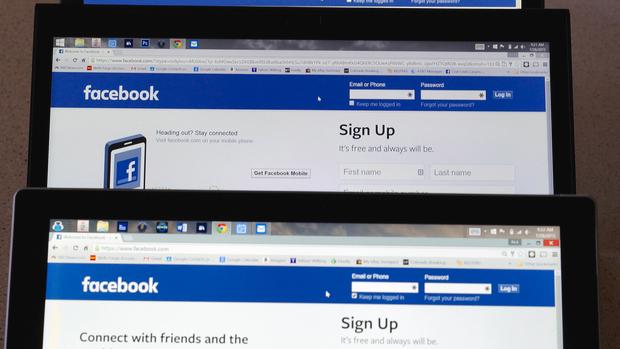Let’s Be Cautious About Purging “Fake News” From the Internet

Computer screens display the Facebook sign-in screen in this photo illustration taken in Golden, Colorado, United States July 28, 2015. REUTERS/Rick Wilking/File Photo
In the days since Donald Trump stunned the world by winning a national election few thought he could we’ve seen his detractors grasp for explanations for that turn of events. Anything allowing them to ignore what seems obvious, which is that millions and millions of Americans got fed up with the American left’s obsession with identity politics, and entrenched notion that anyone straying from liberal orthodoxy is an evil bigot.
Plus, Democrats put a crook on the ballot.
Anyway, there seems to be a growing consensus in the idea that “fake news” articles on the internet – which often featured high in Google search results and got big share numbers on Facebook and Twitter – is what won Trump the election.
[mks_pullquote align=”right” width=”300″ size=”24″ bg_color=”#ffffff” txt_color=”#000000″]Those companies have a scary level of control over what sort of content Americans see. That should give us all pause.[/mks_pullquote]
I’m not so sure about this conclusion. My friend Tim Carney at the Washington Examiner notes that some of the research supporting these conclusions look like junk science. I also think those promoting this idea may have the cause-and-effect relationship between Trump and the fake news reversed. I don’t think the fake news articles were intended to elect Trump so much as cash in on his intense popularity, as well as the widespread interest in the presidential race, and all the web traffic and advertising revenue that drives.
All that said, these fake news stories and their proliferation are irritating, and it doesn’t necessarily break my heart that Facebook and Google are doing something about them. What worries me, though, is that some of the decisions about what is and is not “fake news” may be driven more by ideology than a rational evaluation of the content.
The knee-jerk reaction to this “fake news” problem post-election looks like lashing out by angry liberals, and as such people writing things which anger liberals (like, say, conservative bloggers like me) should be afraid of their content falling victim to some tweak in Facebook or Google’s algorithms.
Those companies have a scary level of control over what sort of content Americans see. That should give us all pause.
Purposefully misleading people in order to draw in web traffic is a deceitful and indefensible business model. But maybe it’s something we should be willing to tolerate, at least to a degree, lest in purging such content we sweep up legitimate points of view that are simply unpopular or controversial.
At the end of the day, the best policy is probably to let people figure out for themselves the veracity of what they’re reading online. That’s imperfect, and a frightening number of people are taken in every day by one bogus notion or another, but it’s better than letting a small number of people act as information gatekeepers for the rest of us.




